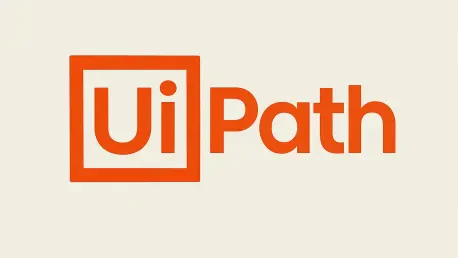In the evolving world of technology, where automation is the cornerstone of modern business strategies, few companies have made a mark as prominent as UiPath Inc. Known for its prowess in robotic process automation (RPA), the company finds itself in an intriguing situation regarding market valuation. Despite its impressive portfolio, including powerful partnerships and widespread integration across various sectors, UiPath trades at a forward 12-month price-to-sales ratio of 4.18X. This figure is surprisingly below the industry average of 5.85X, raising questions about whether the market is truly recognizing UiPath’s long-term potential. Such undervaluation poses a complex narrative as the company continues to demonstrate financial robustness and strategic significance, particularly amidst a booming digital transformation landscape.
Expanding Integration and Strategic Alliances
UiPath’s competitive advantage in the RPA market is bolstered by its extensive integration in sectors such as finance, healthcare, and logistics. The company’s solutions are deeply embedded in these industries, providing streamlined processes that significantly enhance operational efficiencies. This strategic integration is complemented by high recurring revenues, contributing to a stable financial foundation. Moreover, UiPath continues to expand its global footprint, making substantial inroads into new markets. Partnerships with industry giants like Microsoft and SAP further cement its position, enhancing its offerings and elevating its strategic importance in the automation ecosystem. These alliances not only diversify its technological portfolio but also strengthen its role in digital transformation, making the company’s services indispensable to clients worldwide.
Competitive Landscape and Market Perception
When positioned against competitors like ServiceNow and Pegasystems, UiPath presents a compelling case for investors, particularly those seeking affordable exposure to enterprise software. Unlike its competitors, which carry higher valuations, UiPath offers a path to growth without commanding a premium price. This favorable growth prospect is not lost on analysts, as evidenced by the company’s Zacks Rank #1 (Strong Buy). Despite prevailing macroeconomic uncertainties and cautious market sentiment that may discount UiPath’s potential, the fundamental strengths of its innovative approach are undeniable. The market’s reticence appears misplaced, as UiPath’s robust business model and strategic initiatives paint a promising picture for the future.
As UiPath advances in the automation-first landscape, its increasing strategic relevance cannot be overstated. The undervaluation seems paradoxical given its foundational strengths, suggesting that the market might have misjudged the company’s evolving dynamics. Moving forward, UiPath’s relentless focus on expanding its technological impact, in conjunction with its strategic alliances, could position it favorably for investors seeking robust, long-term growth in the automation market. This potential remains as the company continues to redefine the possibilities of enterprise automation on a global scale.









